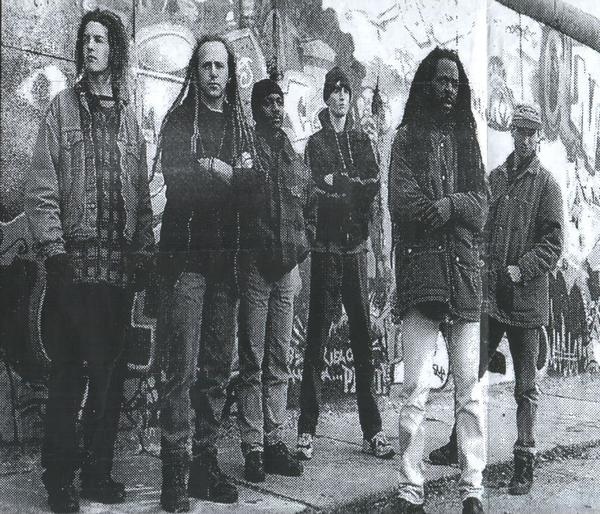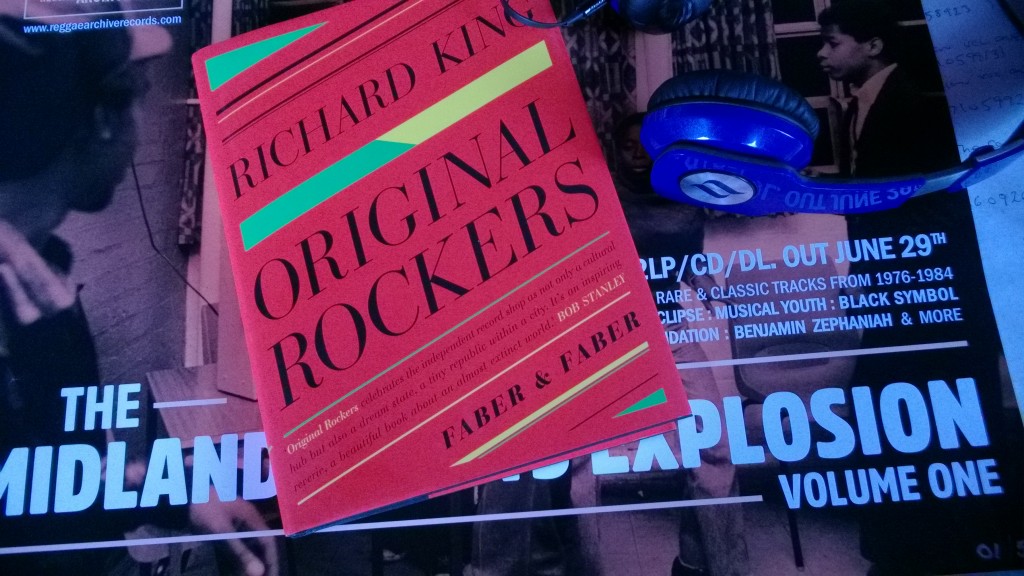The Restriction pressing still hasn’t arrived. To the people that have preordered we can only apoligise and the minute they arrive they will be in the post.
This article might explain why?
The music industry has been celebrating a surge of interest in one of its most beloved artifacts: the vinyl record. Major labels are returning to their old business model and are quickly saturating clothes stores, online shops, electronics outlets and international vinyl-themed holidays with reissues of old classics.
It’s easy to get swept up in the hype – after all, this is surely a worthy alternative to streaming for the music fan with a fondness for physical objects. However, the vinyl boom is hiding problems that could have disastrous implications for popular culture. Vinyl production worldwide is currently operating way above its capacity, and expensive materials, expert knowledge and antiquated techniques have led to to supply shortages and quality problems.
For independent labels, especially those specializing in electronic music, who survived the last two decades by focusing on vinyl in a time when CDs dominated, the resurgence of interest has resulted in more disadvantages than advantages. In fact, their very existence is now in jeopardy. Thaddeus Herrmann, long-standing label owner and editor of German online magazine Das Filter explains why this is the case, what the actual problems are and why the survival of the humble vinyl record is in danger.
In the summer of 2013, the music industry met in Röbel, Germany.
They were invited to visit Optimal Media, one of the largest pressing plants in Europe for CD, DVD and vinyl. Based on the edge of the Mecklenburg Lake District, the company has produced physical media since 1990. With modern assembly lines for digital data carriers such as CDs and DVDs, a large press and logistics and fulfillment center, the company is one of the largest job creators in a region weak on infrastructure. It is a company that serves the entertainment industry worldwide, especially when it comes to vinyl.
The SommerFest was intended not only to take care of business relationships, but also to inaugurate the company’s new vinyl presses. “We really thought the new machines would relieve pressure in our production,” Jens Alder of the Berlin label Morr Music remembers. “However, after the Fest it just got worse.” Even though machines had been restored properly, one thing that was not considered in the planning was that the gas feed did not have enough power to provide the presses with enough output. It would take months before this problem was remedied. In the meantime, the production delays for vinyl just increased.
The labels that never stopped releasing vinyl records, and the labels who saved the production infrastructure from bankruptcy, now see themselves trapped within a highly competitive industry that is attempting, by hell or high water, to find its footing with a few remaining manufacturers that simply cannot meet demand. The point of failure, however, is not limited to securing capacity in the pressing plants. The problems start a long time before this process begins.
“The real problem is not in the pressing – the bottleneck is in the electroplating.”
Silke Maurer, Handle With Care
In contrast to the CD, which for the most part is produced in a completely automated way with machines available on the open market, vinyl’s manufacturing chain is divided into many small parts. It is complicated and requires a lot of work by hand, both in the actual pressing plant as well as with the other steps in the production. Manufacturers have watched as business has boomed in the last few decades, but important investments were ignored, and this is the reason why today’s labels and musicians have to allow up to four months to produce a vinyl record. Even when working three shifts a day and through the weekend, the production facilities can’t deliver in a timely manner. How can that be when even in genres that have traditionally pressed to vinyl, the production runs have continually decreased over the last few years?
“That’s exactly the problem,” explains Silke Maurer of Handle with Care, one of the largest production agencies for records. With her team, she coordinates the production of recordings for numerous labels, no matter whether it is on vinyl, CD, white label or in a box set. “In the last four years, vinyl production has almost doubled here. That sounds super, but you have to take a closer look at how the numbers come together. In the same timeframe, the first run of a title has reduced nearly by half. That means more work for the press. The machines have to be reconfigured more often, which takes a lot of time. But the real problem is not in the pressing – the bottleneck is in the electroplating.”
Electroplating, a process which involves coating the master lacquer in a metal layer to produce stampers, is time-intensive and requires highly trained personnel. Those who have learned electroplating are still a long way from being able to prepare the lacquer – the lengthy process requires a great deal of experience and expertise. Only then can it be guaranteed that the music sounds how it is supposed to sound. And all this has to happen quickly – when the music is cut to the lacquer, it can’t be stored indefinitely. A time period of over two weeks is considered to be problematic.
“The production of vinyl is actually a very lucrative business, at least that was the case in the past,” says Maurer. “The margin is high and the machines are old and completely paid for. As long as production volume stayed the same for the most part, that was it. There should have been new investment much earlier, especially in electroplating.”
Indeed, a trip to a pressing plant offers a bizarre picture. The machines look like they were taken straight from a museum and installed on the factory floor. It is loud, narrow and hot. Every 30 seconds the presses spit out a record that is either automatically placed in a sleeve or put on a spindle in order to be sleeved by hand.
“There are only two companies worldwide that produce lacquers. This is not good for business.”
Andreas Lubich
There are still three large pressing plants in Germany: Optimal, Pallas and R.A.N.D. In addition there is GZ in the Czech Republic, MPO in France and Record Industry in Holland. Remove those, and the landscape in continental Europe quickly becomes confusing.
Many independent pressing plants closed in the late 1980s and early 1990s due to lack of orders. And the major labels, practically all of which owned their own presses, wantonly scrapped the machines in order to help the CD triumph. The introduction of the CD at the beginning of the 1980s was a self-made economic miracle. The development of the new format was supposed to pay for itself as soon as possible, so the silver discs were sold at highly inflated prices in the early years. Thanks to “digital”, back then the magic word, record companies could sell their entire back catalog a second time and with alleged better sound, no scratches, longer playing times (with bonus tracks!) and in a smaller, more practical format.
There was a gold rush at Sony and the other majors, and it’s hard to shake the feeling that the labels are trying to sell their archive a third time, this time to middle-aged buyers who can remember buying vinyl, naturally switched over to the CD, sold or threw away their old vinyl and aren’t completely happy with streaming today. A look at the vinyl section of a large Berlin store proves the shelves are full of reissues of old titles, mostly from major labels. Record players can be purchased right at the checkout. There’s nothing wrong with that – music should be sold in the formats that meet customer demand. But there are indicators that the majors are actively trying to secure substantial vinyl production capacity at the remaining pressing plants. How? By paying in advance. There might even be presses completely reserved for certain companies. That techno EP can wait – Led Zeppelin can’t. In the course of researching this article, we received emails that confirm such requests by the majors.
If this is the case – and the pressing plants are denying it – it would mean that the majors are attempting to buy their way into an industry that they played a significant role in destroying. And they are attempting once again to starve the indie labels, the very labels that never gave up on vinyl. On Record Store Day, when the shops are full of specially-made vinyl records and customers wait in line for these limited editions, the pressing plants have already had many hard weeks of work leading up to it. Who knows how many machines were quickly patched-up in lieu of a proper repair? Nobody has time to take a breath. The next releases are already on standby, and the machines continue to run at a furious pace.
But the vinyl production process isn’t only slowed down by the pressing plants – there are many steps long before a record is pressed that are also subject to complications. “The problem is the monopolization,” says Andreas Lubich, a mastering engineer and vinyl expert from Berlin. “There are currently many good mastering studios that prepare music for vinyl and also take care of the recording themselves. But the cutting machines are old and have to be used with a great deal of care. Replacement parts are rare and the secondhand market prices are unfathomable. Only a handful of people can repair them. They travel around the world throughout the year and have more to do than they can handle. In the worst case this means that a machine will lie idle for many weeks.”
The trouble starts before that. “There are only two companies worldwide that produce lacquers. One of these companies is a one-man operation in Japan run by an old man who produces the lacquers in his garage. It’s excellent quality, but who knows how much longer he can and especially will want to continue to do this. When we are in contact with him, we attempt to order as many lacquers as we can in order to stock up as much as possible. You don’t really know when you will reach him again. The other company is in the USA and serves a large portion of the market. It is practically a monopoly. This is not good for business.”
Then there are the cutting machines. The most popular and well known of these were developed in Germany by Neumann and were produced until the early 1980s. To operate these machines a so-called stylus is needed, which carves the groove into the lacquer to store the music on the disc. “Today, these styluses are produced by one company worldwide,” says Lubich, “by Apollo in the USA, where the lacquers are also made.” One person, Maria, was responsible for the entire production of the styluses and she had mastered the process, according to Lubich. “Maria knew exactly which adhesives were the right ones, and that you couldn’t use the large vats because the consistency of the adhesive would change. Then she retired, and for a long time the styluses were qualitatively just not as good.”
Her successor had to acquire the highly specialized knowledge step-by-step. The engineers who cut vinyl worldwide had to suffer the consequences. “A low quality stylus has direct repercussions on the sound of a record,” says Lubich. The suppliers are also causing a bottleneck, because vinyl granules – the raw material for the production of records – are only produced by five companies.
What was common practice in dance music a few years back – to be able to put out a 12” in a flash – is now practically impossible. If a track is successful, it will need to be repressed quickly in order to meet demand. Sadly, this is no longer possible. “That has many consequences,” says Jens Alder of Morr Music. “On the one hand, you have to better estimate what the vinyl run should be. But that is completely impossible. On the other hand, vinyl now determines our entire release schedule. We can only have a concrete release date when we at least have test pressings in front of us and the artist also has theirs. In the past, the record itself was mostly part of the process.”
The vinyl industry has always been professional, but on a smaller, manageable level. Problems were taken care of through direct contact between the plant and the client. Lack of capacity and production hold-ups only became a problem when certain labels, which had done very well for years without vinyl, rediscovered the format for themselves.
The pressing plants assume that the situation will ease up again in the coming years. The vinyl boom will subside and production will normalize. The hype surrounding the reissues, which appear to be responsible for a large part of the current situation, doesn’t have a long tail. What the collateral damage will be on the labels and artists who don’t view vinyl as a status symbol or as a machine to print money, but as the best format for their music, is hard to determine. One of the steps in the production process will fail eventually. If this happens because an entire industry is busy manufacturing the flea market records of the future, it wouldn’t be an adequate end for the vinyl record.
Article originally posted on Das Filter. Translation by Oswald Harris King. Photography by Maxwell Schiano.
http://www.factmag.com/2015/…/07/pressed-to-the-edge-vinyl/…






